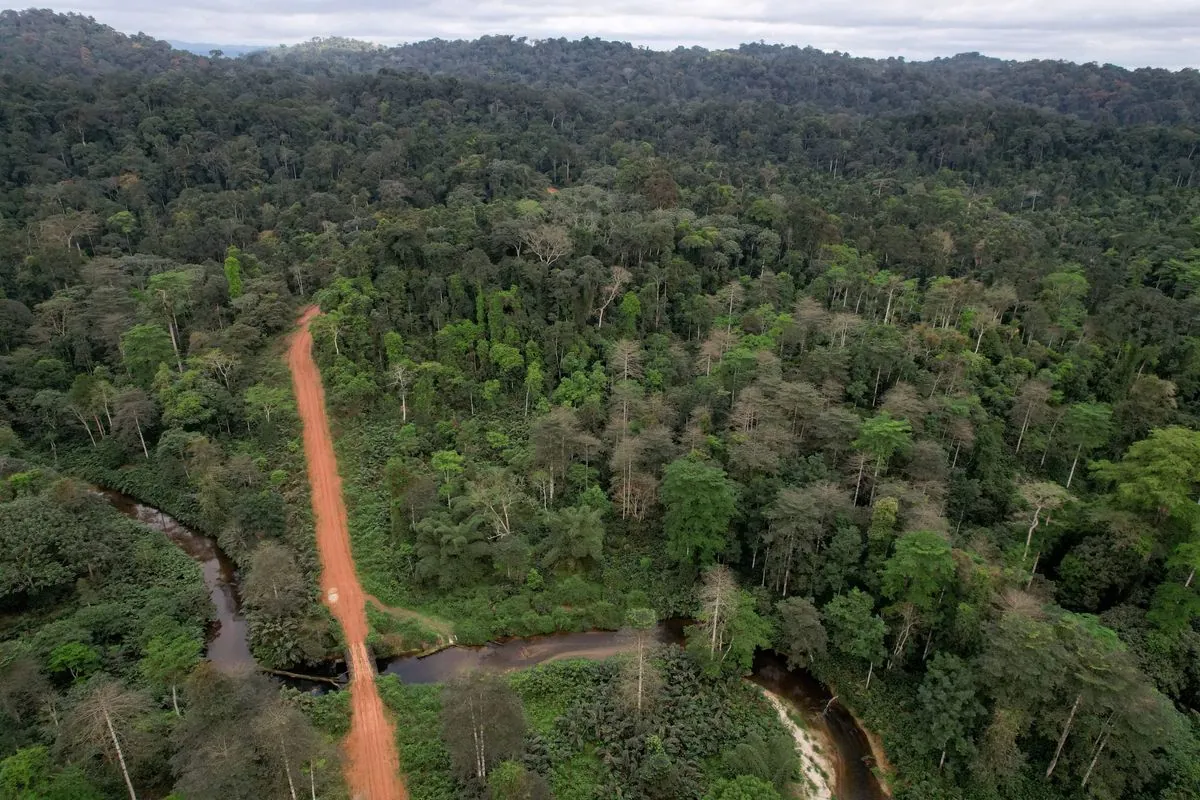Gabon's Junta Eases Restrictions on Rare Kevazingo Tree Logging
Gabon's military government has relaxed rules on logging the rare kevazingo tree, allowing harvesting under specific conditions. The move aims to boost local processing and create jobs in forest regions.

In a significant policy shift, Gabon's military government has eased restrictions on logging the rare kevazingo tree, a species known for its slow growth and valuable timber. The decision, announced on August 30, 2024, exactly one year after the military seized power, allows for controlled harvesting of this prized hardwood under specific conditions.
The kevazingo tree, scientifically known as Guibourtia tessmannii, is native to Central Africa and can take up to 500 years to reach its full height of 40 meters. Its wood is highly sought after in Asian markets for luxury items such as high-end furniture and specialty guitars. The tree's exceptional longevity, with some specimens living over 1,000 years, underscores the importance of sustainable management practices.
Under the new decree, logging of kevazingo is permitted in "sustainably managed concessions" tracked by a geo-referencing system. This approach aims to balance economic interests with conservation efforts. The export of finished kevazingo products will require a CITES (Convention on International Trade in Endangered Species of Wild Fauna and Flora) permit, ensuring compliance with international wildlife trade regulations.

Gabon, home to the second-largest rainforest in the world after the Amazon, has a rich biodiversity with over 400 tree species. The country's forests play a crucial role in carbon sequestration, absorbing approximately 140 million tons of CO2 annually. The forestry sector contributes about 5% to Gabon's GDP, highlighting its economic significance.
The previous government, led by Ali Bongo, had outlawed kevazingo cutting in 2018 due to widespread trafficking. However, a loophole allowed for the sale and export of fallen trees left on the ground for at least six months or those seized from illegal loggers. The new policy aims to address these issues while promoting local processing and creating employment opportunities in forest regions.
"By promoting local processing, the decree stimulates the economic development of forest regions and creates new employment opportunities."
Gabon's environmental efforts have faced challenges in the past. In 2019, Bongo dismissed his vice president and forests minister following a scandal involving the disappearance of hundreds of containers of illegally logged kevazingo wood. This incident highlighted the ongoing issues of poaching, illegal logging, and illicit wildlife trade despite conservation attempts.
The country has made significant strides in forest protection, creating a network of 13 national parks covering 11% of its territory in 2002. Gabon also banned the export of raw logs in 2010 to encourage local processing. With an ambitious goal of having all forest concessions FSC-certified by 2025, the nation continues to balance economic development with environmental preservation.
As Gabon navigates this new policy on kevazingo logging, the international community will be watching closely to see how it impacts both the local economy and the delicate ecosystem of one of the world's most forested countries.


































